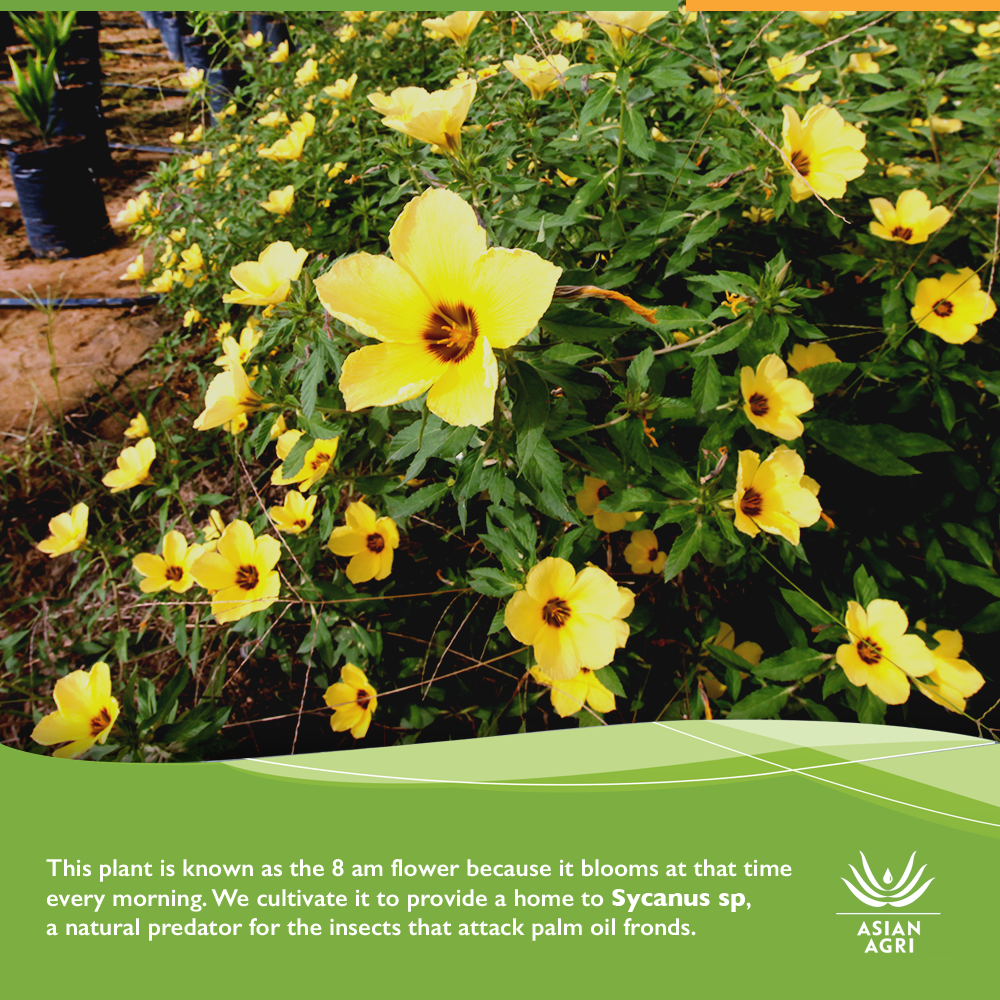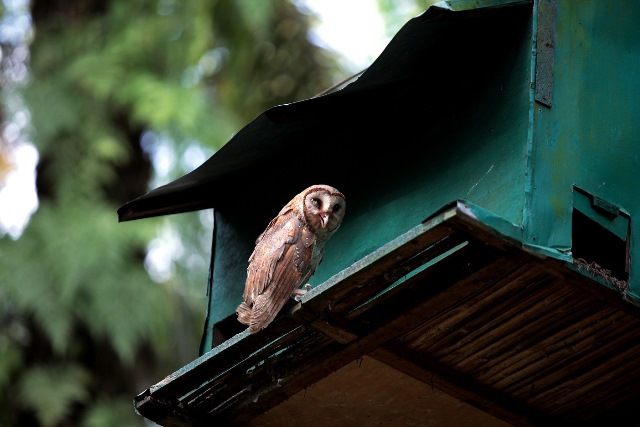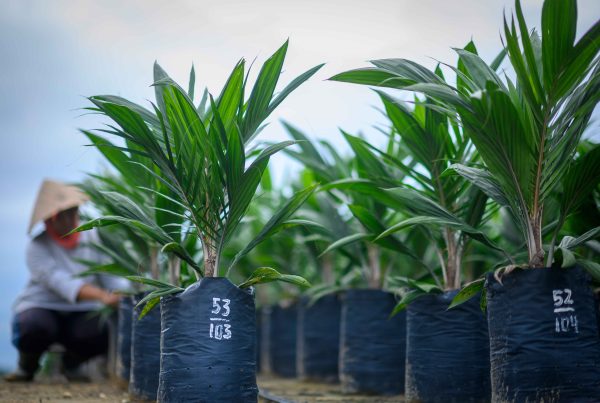Palm oil is highly sought for its derivative palm oil products. It’s also a main target for pests, which eat the crop. How to protect the industry and the income of local communities rely while safeguarding the environment?
Asian Agri has found a natural solution to this problem, allowing it to completely eliminate pesticide usage in its Buatan estate in Sumatra through a program it called Integrated Pest Management.
The most common pests found in palm oil plantations are caterpillars and rats. Caterpillar usually attacks at nursery stage, affecting the quality and quantity of a tree’s production in future.
Rats, on the other hand target mature palms, eating the fruit and reducing a tree’s output.
With 160,000 hectares of oil palm plantations, if we relied fully on pesticides, we would have had released large quantities of chemicals into the environment.
To deal with the caterpillars, Asian Agri has turned to nature. The company breeds an insect called Sycanus, which is a natural predator for the caterpillars. The insects are nurtured for three-four weeks and nature around 2,000 are distributed across the plantations every month.
In order to support Sycanus, Asian Agri has an extensive program to breed and plant Turnera Subulata flowers, as a home for some insects. Asian Agri plants 18m2 of Turnera Subulata per 1.4 hectares of land, making a total of 1,285m2 in both company-owned plantations and those of Plasma and independent smallholders in North Sumatra, Riau and Jambi.
Every month 1,000 flowers are planted, or 12,000 flowers per year.

The rats which eat the palm oil fruit call for a larger solution, and there Asian Agri has turned to Tyto alba – more commonly known as the owl.
For every 25 hectares of plantation, Asian Agri constructs an owl cage. Each owl can eat as many as five rats a night, providing an effective method of controlling the rat population.
The owls are allowed to breed naturally, and Asian Agri does a regular census every two months to check their population.
“We check their health periodically, and sometimes we find an owlet inside the cage. When the owlets reach six months old, they will leave the nest to find their own nest. Rather than keeping them in our control, we prefer to let them live in the wild nature,” said Zulkarnaen, the owl keeper.
The Integrated Pest Management Program brings real benefits to the environment: Asian Agri’s Buatan estate is already 100 percent free from pesticide usage.
“With this method, we are able to control the pest, without harming any other living animals surround,” said Jeni Gunanti, Deputy Assistant Buatan Estate.
This is consistent with the business philosophy of Asian Agri and RGE, which states that the business should be good for the community, good for the country, good for the climate, good for the customer, and only then can it be good for the company.




